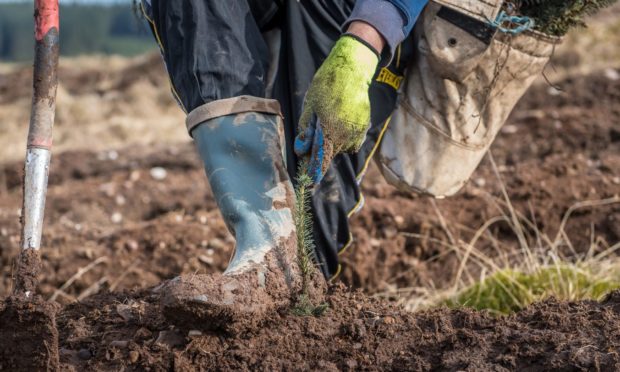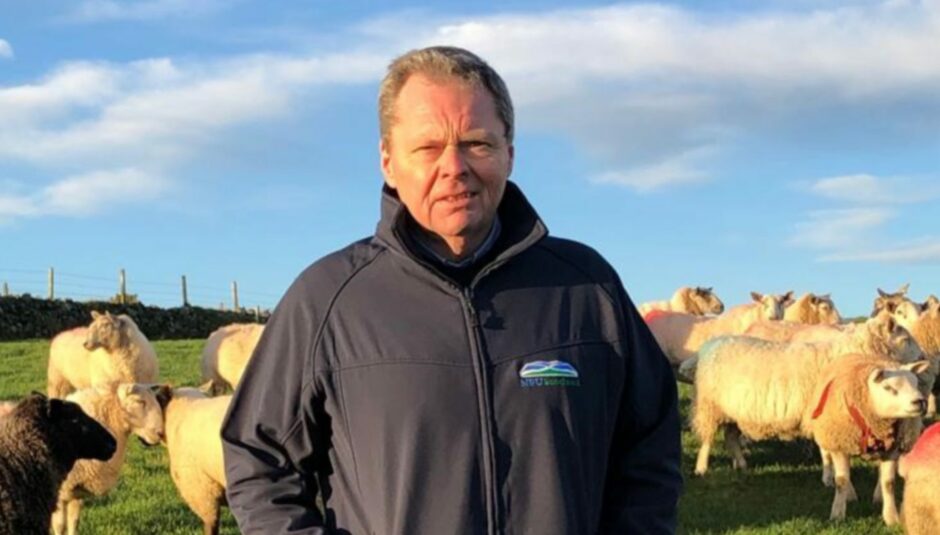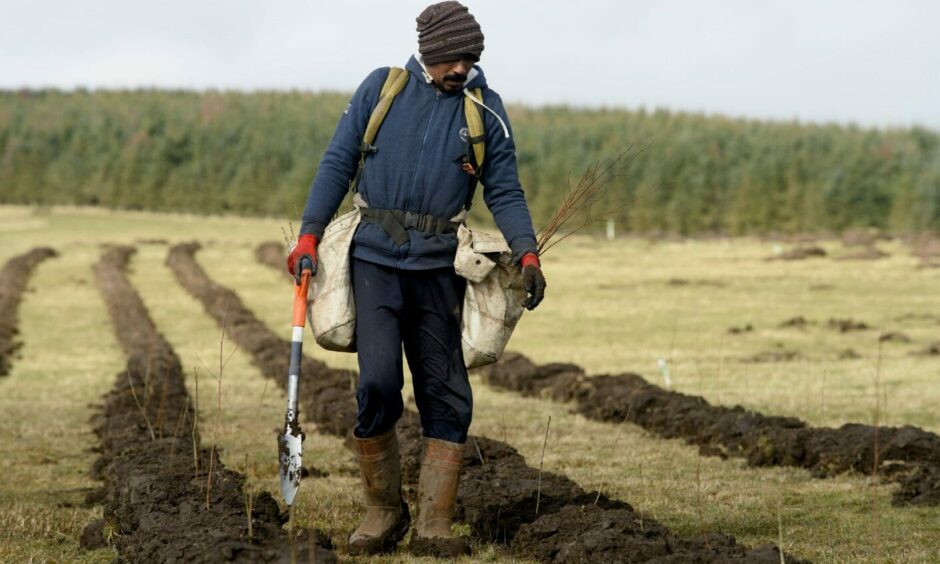The farmers’ union has taken its concerns over tree planting on productive farmland to the Scottish Government.
At a meeting with the Rural Affairs Secretary Mairi Gougeon, Minister Mairi McAllan and senior officials from the government and Scottish Forestry, NFU Scotland (NFUS) leaders emphasised the potential impact on food security and rural communities of losing highly productive agricultural land.
NFUS vice-president Andrew Connon told the government leaders and officials that union members have been contacting him from all parts of Scotland about their concerns over seeing land that was previously used for farming being turned into forestry.
The union says it supports the integration of woodlands into farm businesses, but in recent months it has repeatedly warned that accelerating forestry growth has been fuelled by non-agricultural businesses purchasing land for planting to offset carbon emissions.
Mr Connon said: “We accept that land use is never a straight choice and integrated land use is clearly a major part of reaching net zero targets.
“But we are equally clear that optimal land use is the only route to attaining multiple objectives, and that must include food production, climate change ambitions and biodiversity enhancement.
“As well as the existing legal safeguards that preserve Scotland’s very limited ‘prime’ agricultural land from wholesale tree planting, NFUS believes the time is right for a more robust approach to screening planting applications on Scotland’s ‘productive’ agricultural land.”
Mr Connon said he had also warned government ministers and officials of the impact of widespread tree planting on rural communities.
“We were keen to stress that loss of agricultural activity, and the families it sustains, also risks irreversible socio-economic downturn in many rural areas and that continuous agricultural land management is the best way to support communities, jobs and incomes across rural Scotland,”he said.
“Every agricultural business, regardless of tenure, should be in a position to consider viable and practical woodland creation options as part of mainstream agricultural and land use policy.
“However, that is completely different from wholesale farm plantings that take out not only good agricultural land but also the people who are the life and soul of the community.”


